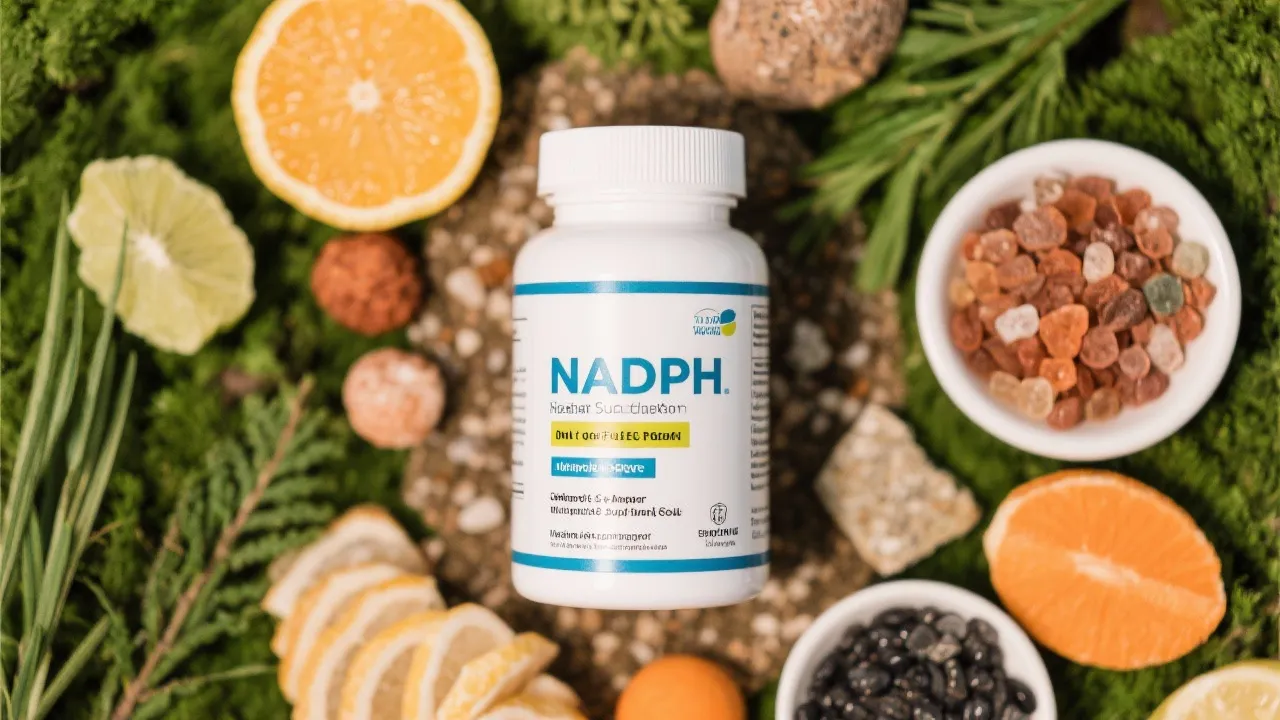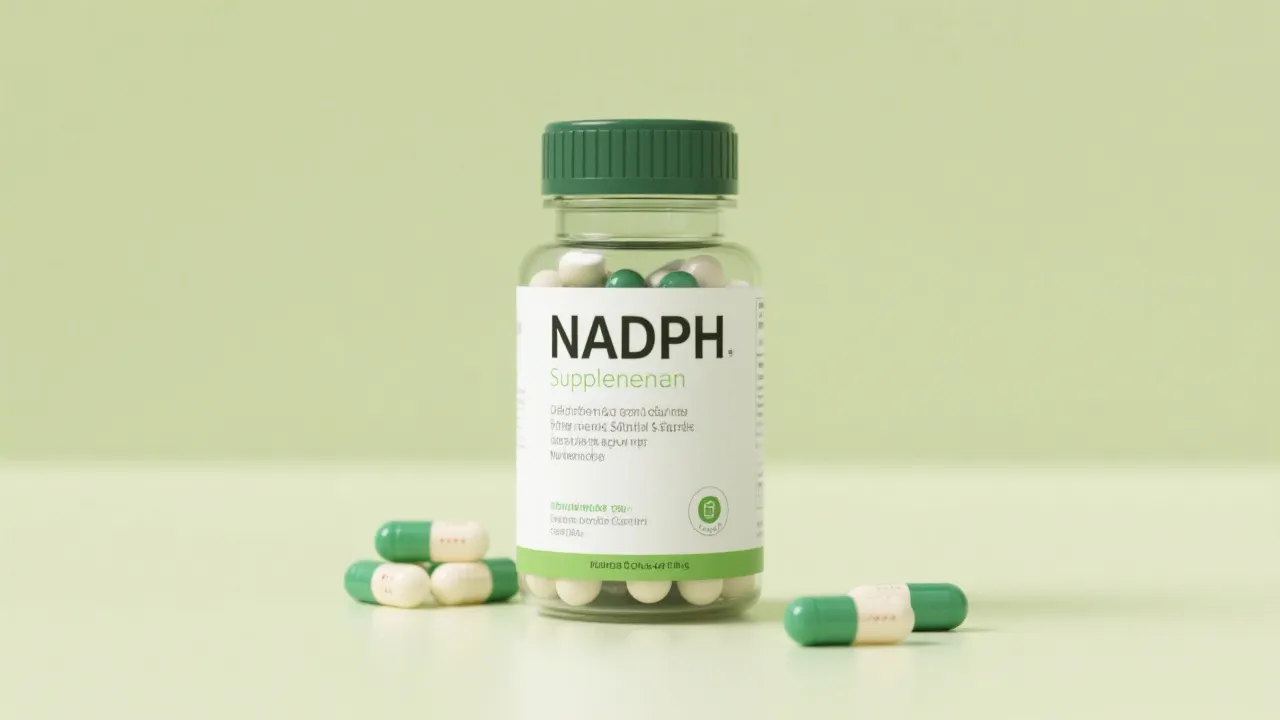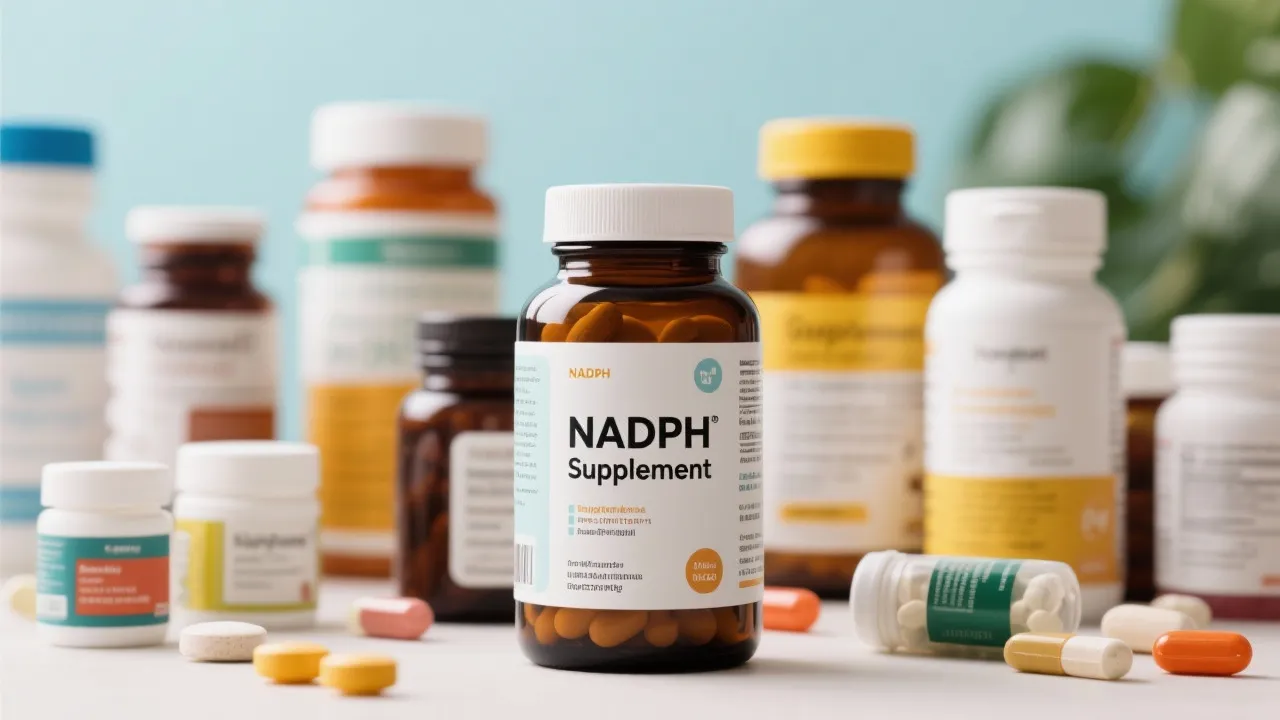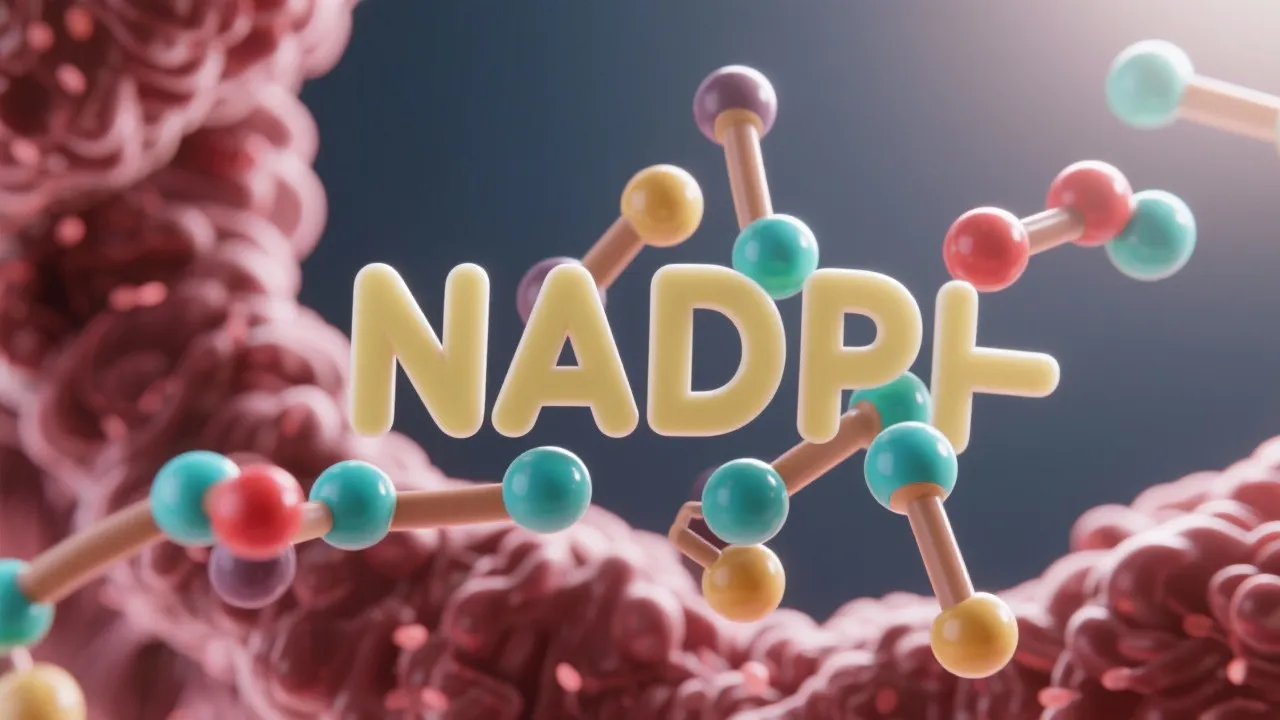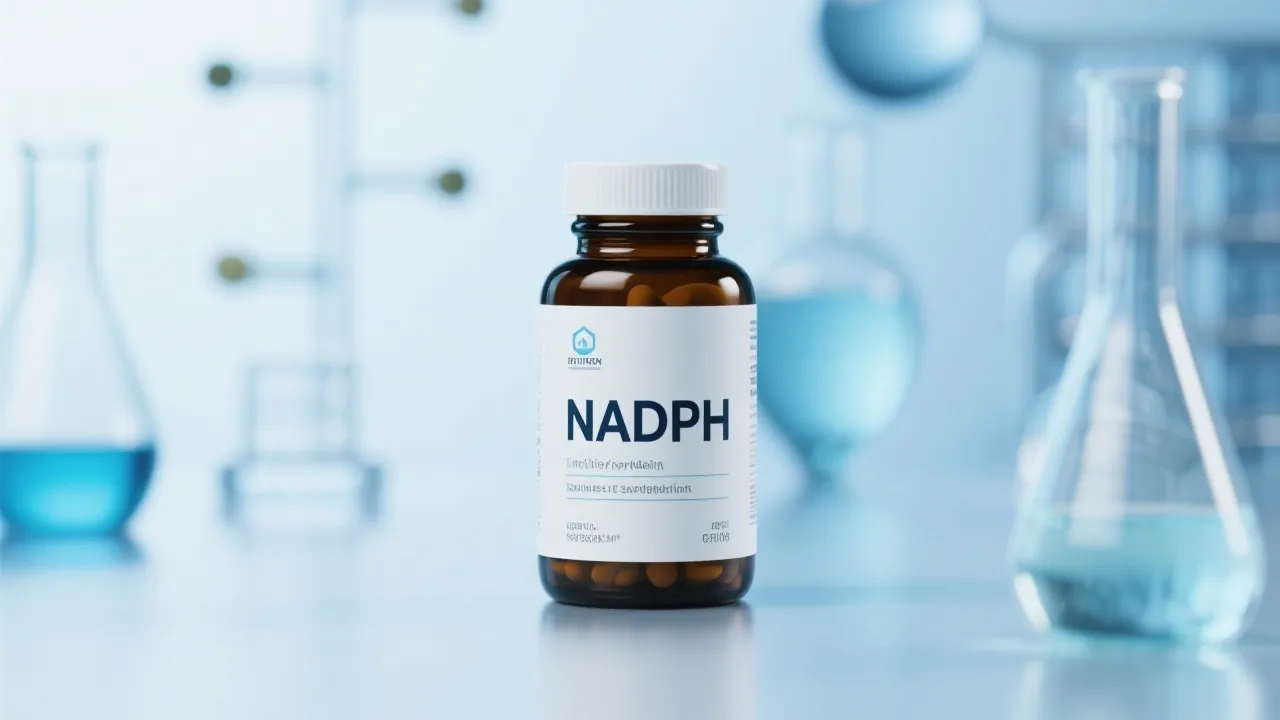The Science Behind NADPH Supplements
NADPH supplements have garnered attention for their potential health benefits, especially in supporting cellular functions. Primarily found in energy-rich foods, NADPH plays a crucial role in cellular metabolism and energy production. This article delves into the biochemical significance of NADPH, explores its potential health benefits, and examines common questions surrounding its supplementation.
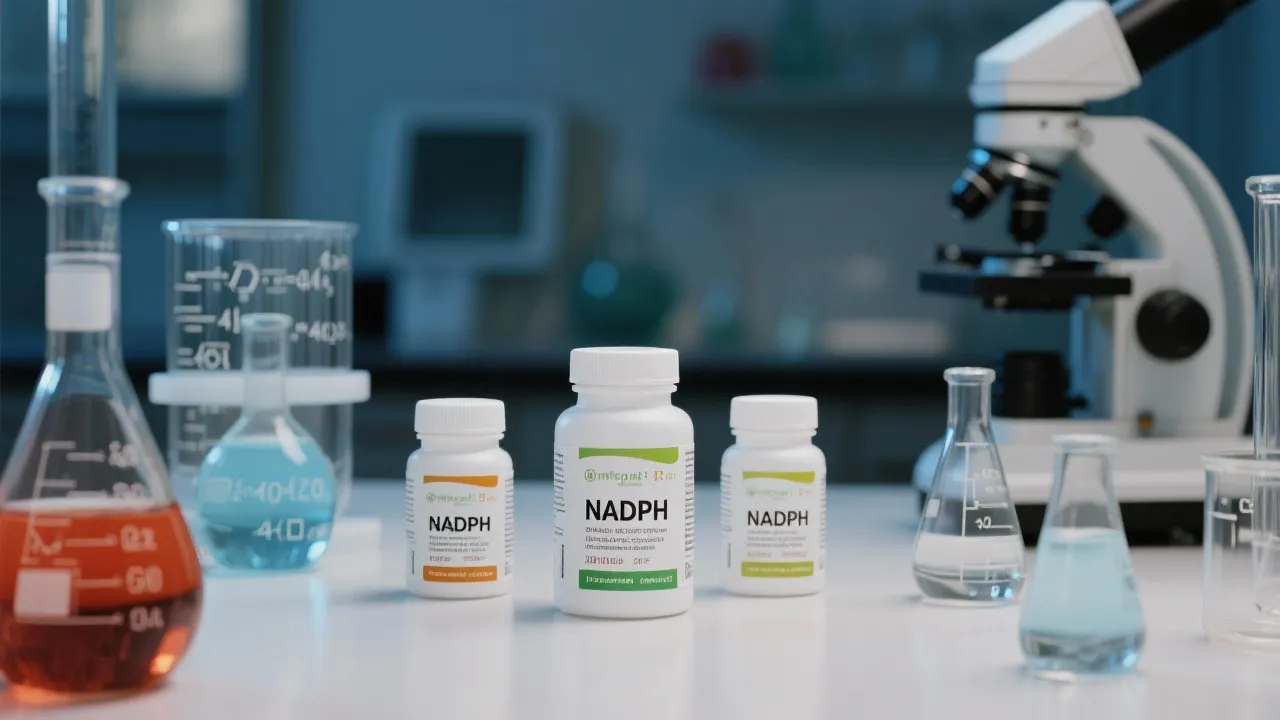
Understanding NADPH and Its Role in the Human Body
Cells in the human body need vast energy to perform their daily functions, with coenzymes like NADPH being pivotal. NADPH, or Nicotinamide Adenine Dinucleotide Phosphate, acts primarily as a reducing agent, associated with anabolic reactions and antioxidant defenses, making it crucial for prevention against oxidative stress. At its core, NADPH serves as a key player in various metabolic pathways, facilitating the reduction of oxidized substrates. The significance of NADPH transcends mere energy production; it is essential for numerous biosynthetic processes, including fatty acid synthesis and nucleotide synthesis.
NADPH is produced through the pentose phosphate pathway, which operates parallel to glycolysis. This unique pathway not only generates NADPH but also produces ribose-5-phosphate, a sugar essential for nucleotide synthesis. Understanding the intricate processes behind NADPH production underscores its crucial contributions to cellular functionality. Beyond generating energy, adequate levels of NADPH ensure that cells maintain optimal redox balance, a dynamic interplay that regulates oxidative stress and cellular health.
Moreover, the enzymatic reactions facilitated by NADPH are integral to cellular repair mechanisms. It provides the reducing equivalents necessary for the synthesis of antioxidant molecules, such as glutathione, which scavenges free radicals and mitigates oxidative damage. In this light, NADPH is not just a bystander in cellular metabolism; it fundamentally influences the longevity and resilience of cells by fortifying antioxidant defenses and bolstering cellular repair.
The Science Behind NADPH Supplements
NADPH supplements aim to boost the body’s natural pathways of energy production and repair. Its role extends to crucial biochemical pathways, including lipid and nucleic acid synthesis, aging, and cellular repair, positioning it as a protagonist in maintaining cellular health. The scientific exploration into NADPH supplementation unfolds within the larger narrative of nicotinamide adenine dinucleotide (NAD) research. Both NAD and NADPH share structural similarities and physiological roles, but they differ fundamentally in their oxidation state and functional roles in metabolic processes. NAD primarily participates in catabolic reactions, while NADPH is central to anabolic pathways.
Current research demonstrates that NADPH supplementation may aid in enhancing mitochondrial function, thereby improving overall cellular bioenergetics. Mitochondria are often referred to as the powerhouse of the cell, and their efficient functioning is crucial for energy production. By boosting levels of NADPH, cells may be better equipped to generate ATP, the energy currency, more efficiently. This aspect of NADPH plays a significant role not only in energy metabolism but also in metabolic flexibility, the ability of cells to switch between energy substrates as needed.
Moreover, NADPH has implications in therapeutic contexts. For individuals facing metabolic disorders, like obesity or diabetes, NADPH supplementation may offer ancillary benefits in managing these conditions. By improving lipid metabolism and reducing inflammation, NADPH might contribute to better metabolic efficiency and help in regulating blood sugar levels. Its antioxidative properties could further aid in lessening the complications associated with chronic diseases.
Potential Health Benefits of NADPH
Supporters of NADPH supplementation suggest several possible benefits due to its integral roles. Enhanced energy levels, improved immune response, delayed signs of aging, and better management of chronic conditions like inflammation and reduced oxidative stress levels are some of the anticipated advantages. One of the notable benefits of NADPH is its relationship with immune function. An efficient immune system is crucial for combating infections and diseases. NADPH oxygenase, an enzyme complex that utilizes NADPH, is vital for generating reactive oxygen species (ROS) that are employed by phagocytes to destroy invading pathogens. This underscores the significance of maintaining optimal NADPH levels for robust immune responses.
Moreover, as individuals age, the natural decline in NADPH levels correlates with reduced mitochondrial function and an increase in oxidative stress, leading to numerous age-related conditions. Supplements promising to raise NADPH levels may potentially mitigate these declines, promoting healthier aging and may even extend vitality. Furthermore, NADPH may have neuroprotective effects, given its role in antioxidant defense. This is particularly relevant in the context of neurodegenerative diseases where oxidative damage is a contributing factor.
Another promising arena of NADPH benefits involves its potential in enhancing athletic performance. For athletes, maintaining high levels of NADPH might facilitate faster recovery and improved endurance by efficiently managing oxidative stress and supporting mitochondrial function. Research indicates that during intense exercise, the demand for NADPH spikes as cells engage in heightened metabolic activity, emphasizing the importance of adequate NADPH to sustain performance and recovery.
Beyond exercise and aging, emerging research indicates potential therapeutic benefits in mental health. Stress and anxiety are often exacerbated by oxidative stress, and supplementation with NADPH might help restore balance within these biochemical pathways, offering a new avenue for managing such conditions.
Are NADPH Supplements Effective?
The efficacy of NADPH supplements largely depends on individual health needs and existing NADPH levels in the body. While scientific research is ongoing, preliminary studies have shown promising results in age-related decline and chronic disease prevention, warranting more in-depth analyses to substantiate these claims. As with many supplements, bioavailability and the ability of the body to utilize supplemented NADPH plays a significant role in determining effectiveness. Factors such as absorption rates, metabolism, and individual biochemistry come into play in how beneficial these supplements may be.
Additionally, it's important to recognize the context in which NADPH supplements are utilized. Simply taking supplements without a comprehensive approach to health—one that includes diet, exercise, and lifestyle adjustments—may limit their potential. For instance, a diet lacking essential nutrients can impede the body's innate ability to generate NADPH, making supplementation less effective. Conversely, adopting a holistic approach can amplify the benefits of NADPH supplementation, enhancing overall health outcomes.
Furthermore, while anecdotal evidence and preliminary findings may suggest the benefits of NADPH supplementation, extensive clinical trials are essential to substantiate these claims. Since individual responses to supplements can vary significantly, what may be effective for one person could be less so for another. Therefore, ongoing research is needed to determine optimal dosing regimens, long-term effects, and the interplay between NADPH and other micronutrients.
Choosing the Right NADPH Supplement
When choosing a NADPH supplement, consider aspects like dosage, brand reputation, purity of supplement ingredients, and specific health goals. Consulting with a healthcare professional is essential to tailor the supplement intake to personal health benchmarks. In an increasingly crowded supplement market, distinguishing high-quality products from inferior ones can be challenging. Here are several key factors to consider when selecting a NADPH supplement:
- Dosage: Amounts of NADPH can vary greatly from one supplement to another. Research-backed dosages are crucial, as insufficient amounts may not yield benefits, while excessive dosages could lead to adverse effects.
- Brand Reputation: Opt for reputable brands with positive reviews and a proven track record regarding the efficacy and safety of their supplements. Brands that adhere to Good Manufacturing Practices (GMP) tend to offer more reliable products.
- Purity and Ingredients: Check the ingredient list for fillers and additives, which can detract from the quality and effectiveness of the supplement. Look for products that offer clear information about their sourcing and production processes.
- Third-Party Testing: Choose supplements that have undergone third-party testing for quality assurance. This adds a layer of credibility to the product’s claims and safety.
- Health Goals: Each individual may have different health objectives. Thus, whether seeking enhanced athletic performance, improved memory function, or better cellular health will dictate the choice of supplement.
Furthermore, engaging in a thorough pre-supplementation assessment with a healthcare practitioner can aid in identifying potentially beneficial supplements tailored to individual health statuses. Testing for existing levels of NADPH and related compounds might offer actionable insights into the most beneficial supplementation strategy.
Ultimately, combining the right product with professional guidance and personalized health goals will pave the way for more effective supplementation approaches.
FAQs
What is the primary function of NADPH in cells?
NADPH serves as a reducing agent, vital for biosynthetic reactions, maintenance of antioxidants, and structural support against oxidative stress. Its role extends beyond mere power supply for anabolic reactions; it embodies the essence of cellular maintenance and repair, allowing for sustained cellular health.
Are there any known side effects of taking NADPH supplements?
While NADPH supplements are generally considered safe, overuse or incorrect dosage can cause unintended side effects. Potential side effects may include gastrointestinal discomfort or headaches for sensitive individuals. Therefore, professional guidance is crucial to ascertain safe and effective use.
How can one ensure the quality of a NADPH supplement?
Opt for pharmaceutical-grade supplements from reputable brands and verify third-party testing to ensure product integrity. Quality control measures and transparent sourcing create a solid foundation for confidence in the supplement's efficacy and safety.
| Criteria | Considerations |
|---|---|
| Dosage | Consult with healthcare providers for personalized dosages, accounting for age, health conditions, and lifestyle factors. |
| Reputation | Select brands known for quality and verified third-party results. Research consumer reviews and expert recommendations. |
| Purpose | Identify whether the supplement aligns with your specific health objectives. Tailor your selection to the outcomes you hope to achieve. |
Final Thoughts
As nutritional sciences advance, NADPH offers an intriguing prospect in health and wellness. Its multifaceted role in cellular metabolism, energy production, and antioxidant defense positions it as a potential ally in promoting overall health. However, the potential benefits must be navigated with established scientific evidence and guided by a healthcare professional to ensure safety and optimal health outcomes. As the landscape of supplements continues to evolve, staying current with scientific research, product quality, and safety guidelines will empower individuals to make informed choices regarding their supplementation strategies.
Moreover, it’s paramount to recognize that supplementation should not be seen as a replacement for a balanced diet and healthy lifestyle. True health begins with foundational practices such as nutrition, regular physical activity, and mental wellness strategies. While NADPH supplementation may enhance aspects of health and performance, it works best as part of a comprehensive approach to well-being. Always stay well-informed and vigilant when choosing supplements as part of your health regimen, and engage with a health professional to create a personalized plan that respects your body’s unique biochemical landscape.
